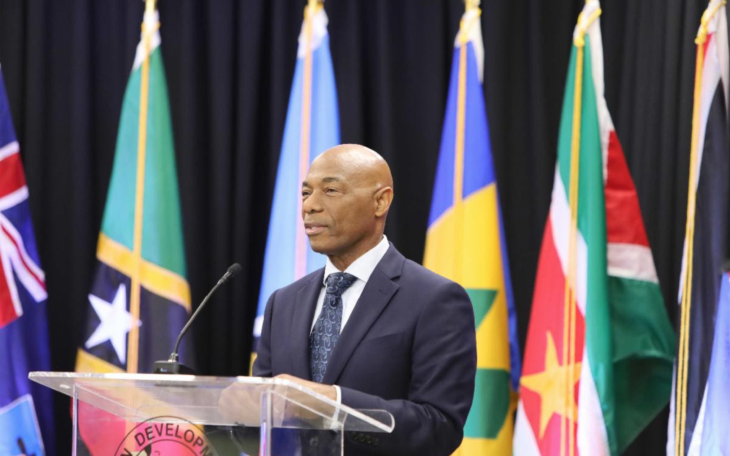President of the Caribbean Development Bank (CDB) Dr Gene Leon on Wednesday made several recommendations to help spur economic growth and development in the region as he said there was a need for urgent action to address several long-standing issues.
This comes as the CDB predicts growth of four per cent for the Barbados economy this year, which is slightly below the forecasted 5.7 per cent growth for the overall region.
The CDB report, which comes about a week ahead of the Central Bank of Barbados’ economic review, estimated that growth for the Barbados economy in 2022 was 10 per cent, the third-highest among borrowing member states behind Guyana (62.3 per cent) and Antigua and Barbuda (10.7 per cent).
The Barbados-headquartered bank said growth in the region last year was largely supported by extra-regional airlift to tourism-dependent states and vibrant energy production in commodity export economies.
It warned of the continued high cost of living and persistent energy costs, with a disproportionate impact on the poor and vulnerable population.
Despite the growth and indication of a “return to some semblance of normalcy” after two years of economic doldrums, Leon warned there were still some outstanding issues that must be addressed.
“Collectively, Caribbean countries experienced an improvement in economic performance but the combined impact of several years of consecutive shocks, as well as the prospect of a slowdown in the global economy and continued price pressure in 2023, threaten to derail our development trajectory,” he warned.
The CBD president said sustainable development and growth will require the building of resilience through the reduction of vulnerability to external shocks while building on the elements “within our power”.
He said sustainable growth, resilience building and transformation required greater access to finance, regional co-operation and integration, regional connectivity and transportation solutions, food security and sovereignty, climate action, energy security and greater private sector engagement.
“The onset of COVID amplified structural weaknesses in our economies and highlighted the extent of our financing need,” Leon said, as he reiterated that the region faced close to US$10 billion in gross financing needs in 2020 and this could be larger at this stage.
He said in order to meet financing needs, regional governments should create a financial market that will facilitate intra-regional and inter-regional flows of capital that was geared towards mobilising regional savings.
The top CDB official said greater accountability and transparency in government spending and improved linkages between governments’ strategic plans and the allocation of resources were required.
“In that regard, CDB strongly supports increased results-based budgeting tied to the sustainable development goal with emphasis on the reform of the public sector’s chart of accounts, medium integrated fiscal framework and the implementation of an integrated financial management information system,” he said.
“Through these investments, countries can engage in a more proactive budget process and benefit from improved efficiency of spending.”
In relation to regional co-operation and integration, Leon said this was urgent and crucial for the Caribbean’s post-COVID-19 pandemic recovery and to overcome development challenges.
Noting that priority should be placed on digitalisation and innovation, he also called on governments to press ahead with the full implementation of the CARICOM Single Market and Economy (CSME).
“I call for a renewed commitment to advance the implementation of the CSME, thereby improving the lives of the region’s citizens through increasing market access for goods, services and people, providing economies of scale, offering greater employment and business opportunities and providing a platform for increased innovation and digitalisation,” Leon said.
He complained that energy costs in the region remained among the highest globally and called for “a collective need for a sustainable energy transition”.
The CDB boss said the region’s transformation must be strongly supported by the private sector, stating that the time had come to “move beyond private sector-led growth to private sector-led development”.
“This transition requires a change in mindset, to reimagine traditional public-private partnerships (PPPs) as partnerships for prosperity and profits. As such, the region’s governments will need to create an enabling environment and invest in innovation such that public propositions offer viable investment opportunities,” he said.
Noting that 2023 will bring its own challenges and surprises, Leon said “the best way to predict the [region’s] future is to create it”.





